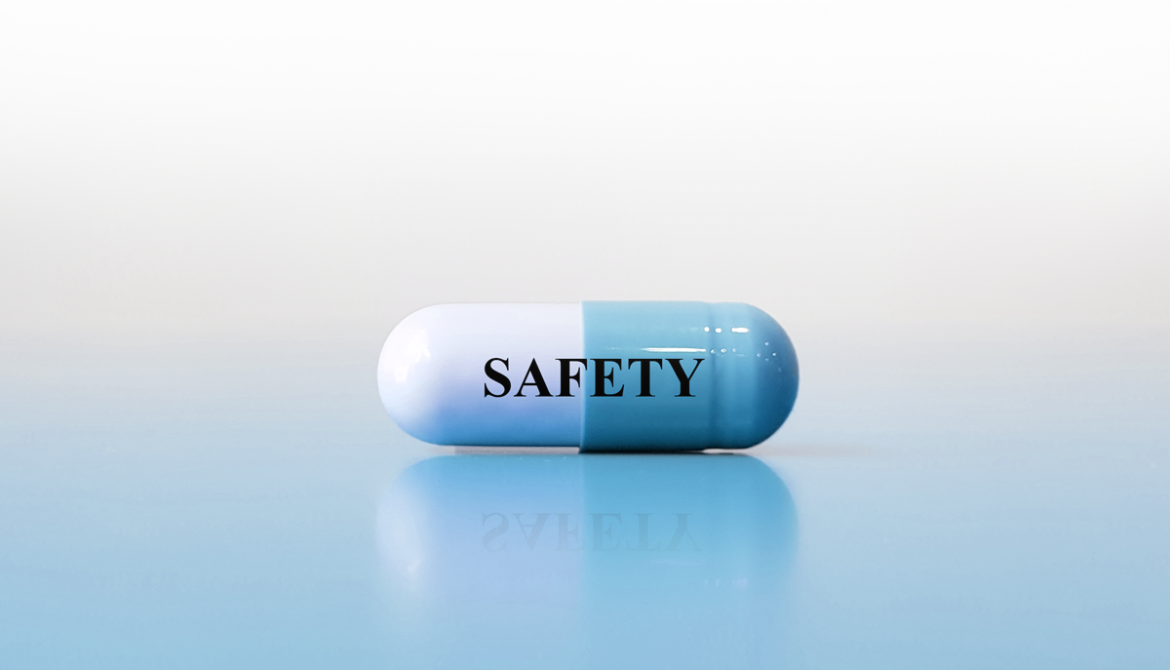Taking Action on Medication Safety
Many older adults want to do all that they can to remain in their own homes, living the life that they chose for themselves, without limits being placed on them by their health. With that in mind, here are 6 actions that you can take right away to improve medication safety and help move you in this direction.
1. Request Your Medications in Different Forms
Do you have trouble reading the fine print on your prescription label? If so, have you asked your pharmacist to make the printing on the bottle bigger for you? Maybe you have arthritis in your hands and struggle to open the bottles? Discuss these concerns with your pharmacist as they can easily be remedied.
We all know that medications won’t work the way that they are supposed to if we don’t take them as we should. This is why many people who have multiple medications will benefit from receiving their medications in a bubble pack, also called a blister pack, or compliance pack. This system simplifies the task of organizing medications, and takes the guesswork out of knowing how and when to take the medication correctly.
Some people would prefer not to have their medications blister packed because the packaging is bulky. An alternative to bubble packs is a pouch-packed medication. This type of medication packaging is similar to bubble packs in that multiple medications can be packaged together. The package is a small, handy, portable sealed plastic pouch, which has printed on it all of the information which is normally found on your prescription vial label, as well as the date and time that it is to be taken. Learn more about medication pouches.
For those people who do take their medication from bubble pack or pouches, it is important to note that these packs are not CHILD PROOF, which takes away a layer of safety. Consider purchasing a lockable medication box custom-built to hold a month’s supply of bubble packs safely and securely. This storage solution ensures that only the right people will have access to the medications. See the options.
2. Talk with Your Pharmacist
One of the most important tools that we have to make medication use safer is information. We must have a solid understanding of our medications, what they are prescribed for, how they are supposed to work, how long they might take to work, and possible adverse effects. When we have this information, we’re far more likely to benefit from medication treatments, with fewer side effects. Have you ever considered making an appointment with your pharmacist? Ask your pharmacist in advance to set aside some time to discuss your health concerns when you come in for your prescription refills.
3. Review Your Medications
Your health concerns and questions may numerous, or you may feel burdened by taking too many medications. It’s also possible that your medications may actually be making you feel less healthy. If so, you may benefit from a more in depth review of all of your medications, during which a pharmacist review all of your medications and address the how, when, and why of each, with the goal of making sure that you are getting the most benefit from of your medications.
If your health concerns and questions are numerous, consider a Comprehensive Geriatric Medication Review. As a Geriatric Pharmacist, certified by the Board of Pharmacy Specialties, I am able to offer a full medication review to older adults who take multiple medications. These reviews are especially useful to those who feel like they are taking too many medications, or who believe that they are not getting the most out of the medications that they take. Learn more about Comprehensive Medication Reviews.
4. Dispose of Your Medication Safely
Many medicine cabinets are stuffed with expired or discontinued medications, which no longer serve a useful purpose, but still pose a risk to safety. Not only could you take them by accident, but others, such as children, could take them by mistake as well. Some medications may also put you at risk of theft if it became known that you had medications in your home which had value on the illicit market. Return your unused, unwanted, and expired medications to your pharmacy for safe, environmentally friendly disposal. There is no charge for medication disposal of prescription drugs. Never dump medications in the trash, down the sink or toilet to be rid of them.
5. Have Information Ready In Case of Emergency
While information and plans are great tools to improve medication safety, these things are useless if not properly communicated to your health care team. Nowhere is Communication more difficult, or more important, than in an emergency situation. In an emergency, this communication needs to happen quickly and completely. Depending on the emergency, you may not be able to speak for yourself.
If you are helped by a paramedic, or brought to the hospital, it is crucial that they are aware of your medical history and have a list of your medications in order to make the best decisions about your care. While carrying an up-to-date medication list with you, or having an Emergency Response Information Kit (ERIK) in your home are great ACTIONS that you can take, these need to be kept up-to-date, and may not be accessible to emergency personnel.
In the past, people have opted to wear a bracelet with their key information engraved on it to speak for them in an emergency. There is certainly a limit to the amount of information can be engraved, however. Today, a better solution exists. People can now create a datafile, with all of their medical conditions, allergies, medications, and contact information for caregivers, doctors, and next of kin listed. These datafiles are free to create, and can be modified at any time if information changes.
The access code for your datafile can then be engraved on an Emergency ID bracelet or printed on a wallet card, giving first responders access to the information that they need instantly. Even more, a person can give their access code to the pharmacists at Home Health Care Pharmacy to update their medication information for them, so the first responders always have the proper and up-to-date information. Taking advantage of the technological benefits can be life-saving. Learn more about datafiles and Emergency ID bracelets.
6. Get Vaccinated
You may have recently taken action to improve your overall safety by receiving the COVID-19 vaccination. Thank you for doing your part to protect everyone and help bring an end to the pandemic. This vaccination is certainly very important, but it is not the only vaccination that you can take advantage of to protect yourself. Two helpful vaccinations that are sometimes overlooked are the vaccines against shingles, and against pneumonia. Ask your pharmacist if these vaccines might be right for you.
7. Prevent Falls
Many older adults experience instability as they age for a variety of reasons. Unfortunately, one contributor to fall risk is the dizziness and imbalance that can be caused by certain medications. Beyond identifying these medications, and reducing their use when possible, it is important to take steps to protect yourself from falling before it happens. Simple steps such as having grab-bars, a shower seat, or a walk-in tub installed in your home can greatly reduce the risk of falling in the bathroom. Using walkers and canes will reduce the risk of falls outside the home, and lift chairs can be a lifesaver for those who struggle with stability when trying to get out of a chair. Please don’t wait for a fall to occur before taking steps to make mobility safer for yourself. An ounce of prevention is worth a pound of cure.

Mark Mercure is certified by the Board of Pharmacy Specialties in Geriatric Pharmacy and is the owner/manager of Home Health Care Pharmacy. He specializes in providing comprehensive medication reviews which help patients optimize medication use and avoid drug-related issues.

